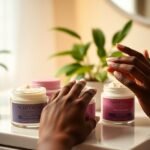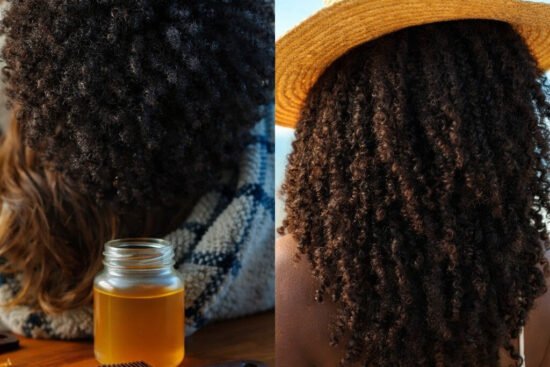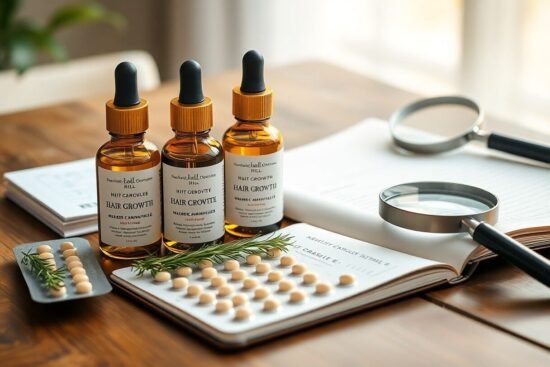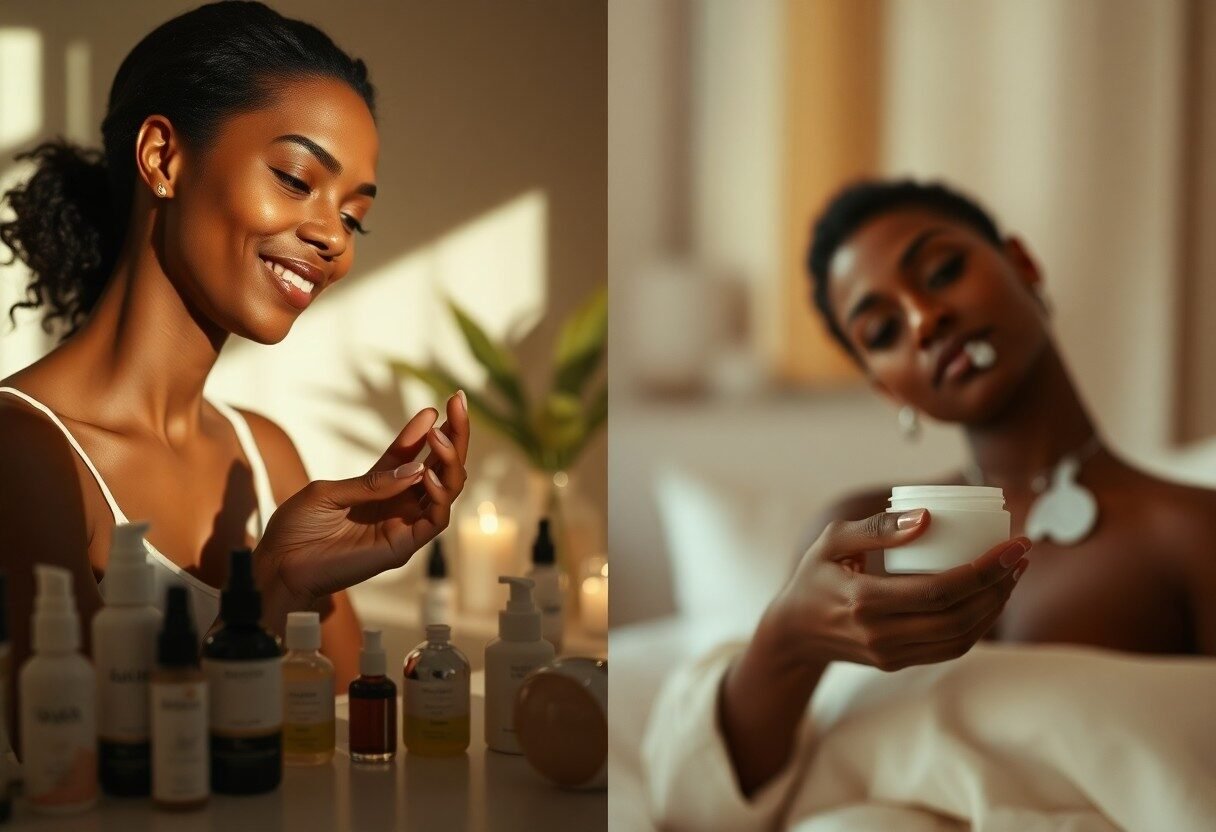
With the unique skin needs that African American women have, I understand the importance of establishing a tailored morning and night skincare routine. Here, I will guide you through effective steps that focus on hydration, even skin tone, and protection against environmental stressors. From cleansing to moisturizing, I’ll share tips that enhance your natural beauty and address common concerns like hyperpigmentation and dryness. Join me as we explore how to achieve healthy, radiant skin that celebrates your unique heritage!
Key Takeaways:
- Use a gentle cleanser in both your morning and night routine to remove impurities without stripping natural oils.
- Incorporate a toner with hydrating ingredients to help balance the skin’s pH and prepare it for further treatments.
- Moisturize daily, selecting creams or lotions that cater to your skin type, whether oily, dry, or combination.
- Always apply sunscreen in the morning to protect against UV damage, even on cloudy days.
- Include serums with antioxidants such as Vitamin C and E in the morning for brightening and protection.
- Nighttime is ideal for using heavier treatments like retinols or chemical exfoliants to promote skin renewal.
- Pay attention to specific skin concerns such as hyperpigmentation, incorporating targeted treatments to address them.
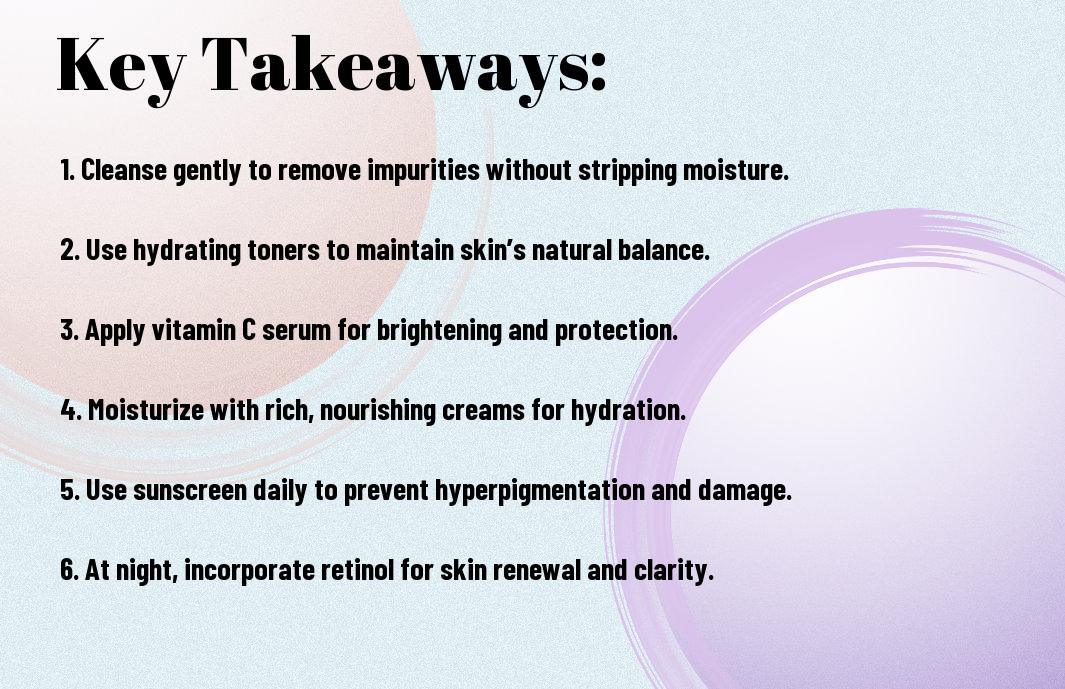
Decoding Skin Types: The Foundation of Your Routine
Understanding your skin type is important for creating an effective skincare routine tailored to your needs. African American women can experience a variety of skin types, which can influence how your skin reacts to different products. Here’s a simple breakdown of skin types and their characteristics:
| Skin Type | Characteristics |
|---|---|
| Normal | Balanced, neither oily nor dry; few blemishes. |
| Oily | Shiny appearance, enlarged pores, prone to acne. |
| Dry | Tightness, flakiness, irritation. |
| Combination | Oily in some areas (T-zone) and dry in others. |
| Sensitive | Reactive to products, prone to redness and irritation. |
Perceiving your unique skin type is the first step in establishing a personalized skincare routine that resonates with your individual needs.
Identifying Your Skin Type
Knowing your skin type can significantly enhance your skincare efforts. You can identify it by observing how your skin feels and looks at different times of the day. A simple test involves cleansing your face and leaving it bare for several hours. If your skin feels tight, it may be dry. An oily surface, particularly in the T-zone, indicates an oily skin type. Combination skin often shows both characteristics, while sensitivity might reveal redness or irritation after product application.
Common Skin Concerns Among African American Women
African American women encounter several specific skin concerns that set their skin needs apart. Hyperpigmentation, for instance, is prevalent and caused by factors such as sun exposure and hormonal changes. Additionally, keloids—raised scars that form after an injury—are more common in this demographic. Dryness and uneven skin tone can also pose challenges, making tailored solutions important for maintaining healthy skin.
African American women often have to navigate complicated skin issues, like *hyperpigmentation*, which affects 50-80% of this demographic. This condition arises from excess melanin production and can be exacerbated by sun exposure or inflammatory conditions. Keloids, another skin concern, result from abnormal healing processes after skin injuries. Other common issues include dry patches and ingrown hairs, often caused by shaving or waxing. Finding products that cater to these unique challenges can help achieve a healthy, radiant complexion.
Essential Morning Rituals: Kickstart Your Day
Cleansing Techniques That Energize
Starting my morning with the right cleansing technique sets a refreshing tone for the day. I prefer a gentle foam or gel cleanser that effectively removes overnight sweat and oil without stripping my skin. Products containing natural ingredients like aloe vera or tea tree oil not only purify but also provide an energizing burst of freshness, waking up my skin and prepping it for the day ahead.
The Power of Toners and Serums
Toners and serums play a vital role in my skincare arsenal. Following cleansing, I apply a toner that balances my skin’s pH and tightens pores, which is necessary for my combination skin. I often reach for serums packed with vitamin C or hyaluronic acid to boost hydration and radiance. These powerhouse products penetrate deeper layers, providing an extra layer of care to enhance my skin’s texture and luminosity throughout the day.
Employing toners enriched with botanical extracts, such as witch hazel or rose water, can help calm any redness, especially crucial for African American skin prone to hyperpigmentation. The right serum, full of antioxidants, not only hydrates my skin but also protects it from environmental stressors, preserving my natural glow. Consistency in using these products yields visible results, ensuring my skin looks vibrant and healthy day after day.
Moisturizing and Sun Protection: A Dynamic Duo
After applying my serum, I always follow up with a moisturizer that provides lasting hydration without feeling greasy. A lightweight, oil-free formula works best for my skin type. Don’t forget, daily SPF is a must; I choose a broad-spectrum sunscreen that protects against both UVA and UVB rays, important for preventing premature aging and hyperpigmentation.
The combination of a good moisturizer with SPF creates a barrier against the sun’s damaging rays, which can exacerbate skin concerns, particularly for darker skin tones that are sometimes more vulnerable to hyperpigmentation and sun damage. Finding a moisturizer with built-in sun protection simplifies my routine while ensuring I’m guarded against harmful UV exposure throughout the day. When I make this duo a non-negotiable part of my morning ritual, my skin stays hydrated, protected, and ready to take on whatever the day brings.
Nighttime Nourishment: Restorative Practices
Importance of Evening Cleansing
Evening cleansing is necessary for your skin’s health, especially after a long day. You need to wash away dirt, oil, and makeup that have accumulated on your skin. Residual impurities can lead to clogged pores and breakouts, so using a gentle cleanser at night helps to maintain a fresh canvas, allowing your skin to breathe and regenerate while you sleep.
Targeted Treatments: Addressing Specific Concerns
Using targeted treatments at night can significantly enhance the effectiveness of your skincare routine. Focused products can address specific issues like hyperpigmentation, fine lines, or acne breakouts. Incorporate serums or treatments containing ingredients like retinol for anti-aging benefits, or vitamin C for brightening and evening out skin tone, tailored to your unique skin concerns.
For those struggling with dark spots or uneven texture, consider a targeted serum that contains ingredients like alpha arbutin or niacinamide. Both of these can help reduce the appearance of hyperpigmentation and promote a more uniform skin tone. If you experience oiliness or breakouts, look for a lightweight, non-comedogenic product featuring salicylic acid to help clear and prevent blemishes while you rest.
Hydrating Overnight Masks: A Skin Savior
Incorporating hydrating overnight masks can transform your skin by providing deep nourishment while you sleep. These masks are designed to lock in moisture and keep your skin plump and radiant, ensuring you wake up with a fresh glow. Look for ingredients like hyaluronic acid and shea butter that are particularly effective for African American skin, offering intensive hydration and barrier repair.
These overnight masks create a protective layer on your skin, allowing potent ingredients to penetrate deeply and enhance your skin’s moisture levels. It’s like giving your skin a luxurious drink while you sleep, leading to a noticeable difference in texture and hydration. Using one 2-3 times a week can help boost your overall skin health, combating signs of dryness and fatigue for a revitalized morning appearance.
Ingredient Spotlight: What Works Best
Natural Oils and Their Benefits
Natural oils can be a game changer for your skin, especially for African American women who often deal with dryness and uneven skin tone. Oils like jojoba, argan, and rosehip provide intense hydration without clogging pores. They possess anti-inflammatory properties that help soothe irritation, while antioxidants combat signs of aging. Incorporating a few drops into your routine can enhance moisture retention and bring out that beautiful glow.
Ingredients to Avoid: The Hidden Dangers
Several ingredients can wreak havoc on your skin, especially if you’re not mindful. Stay away from sulfates, parabens, and artificial fragrances, which can lead to irritation, breakouts, and long-term damage. These additives are often found in many products, so I make a habit of checking labels.
Products containing sulfates strip away vital oils, leaving skin dry and vulnerable. Parabens, although commonly used as preservatives, have been linked to hormone disruption. Meanwhile, artificial fragrances can trigger allergic reactions and sensitivities, especially in darker skin tones prone to hyperpigmentation. By avoiding these harmful ingredients, you can keep your skin healthy and radiant.
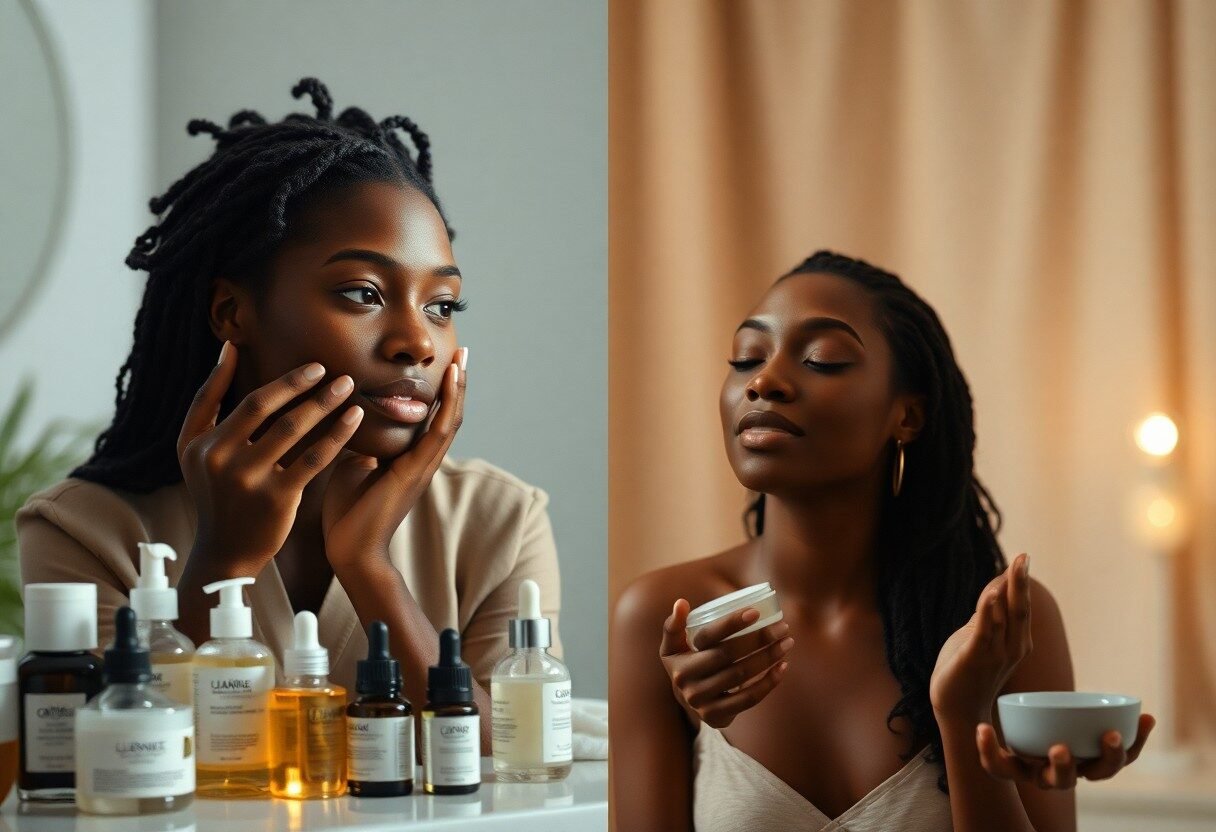
Dispelling Myths: What You Shouldn’t Believe
Misconceptions About Darker Skin
A common misconception is that darker skin requires less hydration than lighter skin due to its higher melanin content. In reality, all skin types, regardless of color, need adequate moisture to prevent dryness and maintain a healthy barrier. This myth can lead to neglected care, resulting in issues such as dryness, uneven texture, and hyperpigmentation. Understanding that hydration is imperative for all skin tones is key to unlocking your best skin.
Cultural Influences and Skin Care
Cultural influences play a significant role in shaping skincare routines within African American communities. Often, traditional beauty practices, passed down generations, may prioritize natural remedies over commercial products. This connection to culture can empower individuals to embrace their heritage while addressing specific skin concerns that are prevalent in darker skin tones, such as hyperpigmentation and acne scars.
For instance, some may rely on shea butter, an age-old staple in African cultures, as a moisturizer and treatment for ailments. The rich history behind these practices showcases not only effective skincare solutions but also the importance of community knowledge. Incorporating these powerful traditions with modern science can enhance your skincare routine while staying true to your roots. It’s about finding that perfect balance that respects cultural heritage while embracing innovative products tailored for your unique skin needs.
The Role of Nutrition and Hydration in Skin Health
Foods That Promote Radiance
Incorporating specific foods into your diet can significantly enhance your skin’s appearance. Berries, rich in antioxidants, combat free radicals and help maintain a youthful glow. Fatty fish, such as salmon, are abundant in omega-3 fatty acids that nourish your skin and reduce inflammation. Don’t overlook avocados, which are high in healthy fats and vitamins that promote elasticity and hydration. Including these nutrient-dense foods in your meals empowers your skin to look its best while also contributing to overall health.
The Impact of Hydration on Your Skin
Hydration is important for achieving plump, radiant skin. As your skin loses moisture, it can appear dull, flaky, and prone to signs of aging. Drinking adequate water daily lubricates skin cells, improves blood circulation, and helps to combat dryness while supporting your skin’s natural barrier. On average, I aim for at least eight 8-ounce glasses of water a day, though individual needs may vary based on activity levels and climate.
The truth is that hydration goes beyond just drinking water; it includes consuming foods with high water content like cucumbers, oranges, and celery. These foods not only quench your thirst but also contribute to your skin’s moisture levels. When I prioritize hydration, I notice a significant difference in how my skin looks and feels—smoother texture, fewer breakouts, and a noticeable glow. Being mindful of my hydration habits has become a non-negotiable part of my skincare journey.
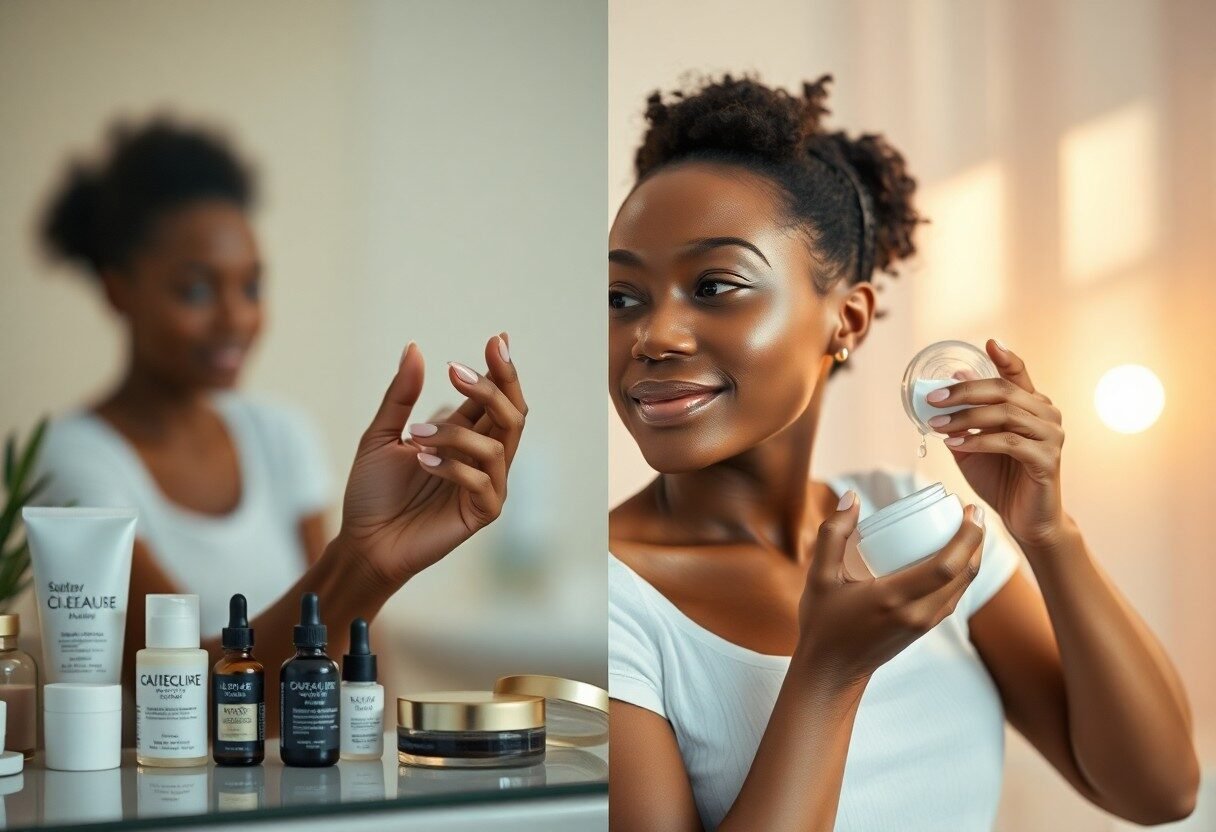
Customizing Your Routine: Making It Work for You
Adjusting for Seasonal Changes
As the seasons change, so do the needs of your skin. In the colder months, I notice my skin craves extra moisture due to the dry air, so I often switch to a heavier cream. Conversely, during the summer, I lean toward lighter gel formulations to keep my skin hydrated without feeling greasy. By observing these seasonal shifts and adapting your moisturizer, you can retain a healthy glow year-round.
Listening to Your Skin’s Needs
Paying attention to your skin’s signals can help you create a tailored routine that evolves with you. When I feel dryness or breakouts, I reassess my product choices and consider factors like stress or hormonal changes. Adjusting what I use based on my skin’s responses has led to more effective results.
Your skin communicates its needs to you, often through dryness, oiliness, sensitivity, or breakouts. Keeping a skincare journal helps me track these changes, noting what I apply, when my skin feels off, and any changes in my lifestyle. For instance, when a breakout occurs, I know to temporarily cut back on heavy products and focus on gentle exfoliation. This awareness empowers me to make proactive adjustments, ensuring my skin remains balanced and healthy.
Building Consistency: The Key to Lasting Results
Strategies for Sticking to Your Routine
Creating a consistent skincare routine starts with realistic goals. I find it helpful to set a specific time each morning and night for my regimen, treating it like an important appointment. You might also consider using a planner or a phone reminder to stay on track. Incorporating a visual element, like a skincare journal or a chart of your routine, can provide motivation and remind you of the progress you’re making. Surrounding your routine with positive affirmations or even motivational quotes can also boost your commitment.
The Psychological Benefits of Self-Care
Engaging in a skincare routine transcends the physical aspect; it nurtures your mental well-being. I often experience a sense of calm and increased self-worth during my regimen, reinforcing a connection to my individuality. Investing time in self-care not only helps alleviate stress but fosters a mindset of respect and love for oneself, which can combat feelings of anxiety and depression. I’ve noticed that when I prioritize my skincare, my overall mood improves, igniting a healthier self-image and confidence.
Self-care practices, like maintaining a consistent skincare routine, can heighten feelings of control and comfort during turbulent times. For many, this ritual becomes a sanctuary—a few quiet moments to focus solely on oneself amidst life’s chaos. Research suggests that acknowledging and attending to our needs can lead to improved emotional resilience. I’ve found that embracing these moments fosters a deeper appreciation for my skin and a stronger sense of identity, ultimately enriching my overall quality of life.
Conclusion
Summing up, establishing a consistent morning and night skincare routine tailored for African American women is important for maintaining healthy, radiant skin. I encourage you to focus on hydrating and protecting your skin during the day while providing nourishment and repair at night. Invest in quality products that cater to your unique skin concerns, and don’t hesitate to experiment to find what works best for you. By committing to this routine, your skin will not only look its best but also feel revitalized and confident throughout the day and night.
FAQ
Q: What are the crucial steps in a morning skincare routine for African American women?
A: A basic morning skincare routine should include the following steps:
1. Cleansing – Use a gentle cleanser to remove impurities and excess oil.
2. Toning – Apply a toner to balance the skin’s pH and tighten pores.
3. Moisturizing – Use a moisturizer to hydrate the skin, choosing one that suits your skin type (gel for oily, cream for dry).
4. Sunscreen – Apply a broad-spectrum SPF of at least 30 to protect against UV damage. This step is crucial, regardless of skin tone.
Q: How should I choose products that cater to my skin type?
A: Understanding your skin type is key. For instance:
– Oily skin often benefits from lightweight, oil-free products.
– Dry skin requires more hydrating products with nourishing ingredients like shea butter or hyaluronic acid.
– Combination skin may need a mix of both, targeting dry areas with richer creams while using lighter products on oilier zones.
Always test new products on a small patch of skin before a full application.
Q: What nighttime skincare steps should I follow?
A: A comprehensive nighttime skincare routine typically includes:
1. Cleansing – Remove makeup and impurities with a gentle cleanser.
2. Exfoliating – 2-3 times a week, use a chemical exfoliant (like AHAs or BHAs) to remove dead skin cells.
3. Toning – Apply a toner to prep the skin for better absorption of products.
4. Treatments – Use serums or treatments for specific concerns like hyperpigmentation or acne.
5. Moisturizing – Apply a richer nighttime moisturizer to nourish the skin while you sleep.
Q: Are there specific ingredients I should look for or avoid in my skincare products?
A: Ingredients such as vitamin C, niacinamide, and glycolic acid can greatly benefit darker skin tones by evening out skin tone and boosting radiance. Ingredients to be cautious about include alcohol-based products that can dry out the skin and heavy fragrances that may irritate sensitive skin.
Q: How can I address hyperpigmentation in my skincare routine?
A: Addressing hyperpigmentation involves consistently using products that target discoloration. Look for:
– Vitamin C serums for brightening skin.
– Retinoids to speed up cell turnover.
– Hydroquinone, used under the guidance of a dermatologist.
Additionally, incorporating sunscreen into your routine will prevent further darkening.
Q: Is it necessary to use different products for day and night?
A: Yes, using different products can be beneficial. Day products should focus on hydration and protection (like SPF), while nighttime products can concentrate on repair and restoration, often containing more active ingredients that may increase sun sensitivity. This helps address various skin concerns effectively based on the time of day.
Q: How often should I update or change my skincare products?
A: It’s advisable to evaluate your skincare routine every few months based on your skin’s changing needs, environmental factors, and any specific concerns you encounter. If you experience irritation or see no improvement after consistent use (about 6-8 weeks), consider changing products. However, it’s ideal to introduce only one new product at a time for easier tracking of results.



